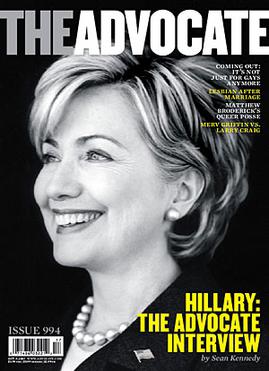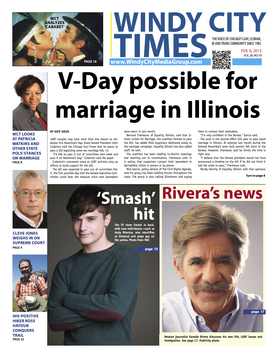Related Research Articles

The LGBT community is a loosely defined grouping of lesbian, gay, bisexual, and transgender individuals united by a common culture and social movements. These communities generally celebrate pride, diversity, individuality, and sexuality. LGBT activists and sociologists see LGBT community-building as a counterweight to heterosexism, homophobia, biphobia, transphobia, sexualism, and conformist pressures that exist in the larger society. The term pride or sometimes gay pride expresses the LGBT community's identity and collective strength; pride parades provide both a prime example of the use and a demonstration of the general meaning of the term. The LGBT community is diverse in political affiliation. Not all people who are lesbian, gay, bisexual, or transgender consider themselves part of the LGBT community.
LGBT slang, LGBT speak, queer slang, or gay slang is a set of English slang lexicon used predominantly among LGBTQ+ people. It has been used in various languages since the early 20th century as a means by which members of the LGBTQ+ community identify themselves and speak in code with brevity and speed to others. The acronym LGBT was popularized in the 1990s and stands for Lesbian, Gay, Bisexual, and Transgender. It may refer to anyone who is non-heterosexual or non-cisgender, instead of exclusively to people who are lesbian, gay, bisexual, or transgender. To recognize this inclusion, a popular variant, LGBTQ, adds the letter Q for those who identify as queer or are questioning their sexual or gender identity.

Curve is a global lesbian media project. It covers news, politics, social issues, and includes celebrity interviews and stories on entertainment, pop culture, style, and travel.

The Advocate is an American LGBT magazine, printed bi-monthly and available by subscription. The Advocate brand also includes a website. Both magazine and website have an editorial focus on news, politics, opinion, and arts and entertainment of interest to lesbians, gay men, bisexuals and transgender (LGBT) people. The magazine, established in 1967, is the oldest and largest LGBT publication in the United States and the only surviving one of its kind that was founded before the 1969 Stonewall riots in Manhattan, an uprising that was a major milestone in the LGBT rights movement. On June 9, 2022, Pride Media was acquired by Equal Entertainment LLC known as equalpride putting The Advocate back under gay ownership.

Windy City Times is an LGBT newspaper in Chicago that published its first issue on September 26, 1985.

NLGJA: The Association of LGBTQ+ Journalists, is an American professional association dedicated to coverage of LGBTQ+ issues in the media. It is based in Washington, D.C., and the membership consists primarily of journalists, students, educators, and communications professionals. The organization was previously known as the National Lesbian and Gay Journalists Association (NLGJA), but changed its name in 2013 to "NLGJA: The Association of LGBT Journalists" to reflect the diversity of the communities it represents. In 2016, it added a "Q" to represent queer journalists and people, updating its name to "NLGJA: The Association of LGBTQ Journalists". In 2023, it added a "+" to represent those gender-diverse and sex-diverse people whose identities are not well-known to be added to the acronym, and those who are questioning their identities, updating its name to "NLGJA: The Association of LGBTQ+ Journalists".

Jenni Olson is a writer, archivist, historian, consultant, and non-fiction filmmaker based in Berkeley, California. She co-founded the pioneering LGBT website PlanetOut.com. Her two feature-length essay films — The Joy of Life (2005) and The Royal Road (2015) — premiered at the Sundance Film Festival. Her work as an experimental filmmaker and her expansive personal collection of LGBTQ film prints and memorabilia were acquired in April 2020 by the Harvard Film Archive, and her reflection on the last 30 years of LGBT film history was published as a chapter in The Oxford Handbook of Queer Cinema from Oxford University Press in 2021. In 2020, she was named to the Out Magazine Out 100 list. In 2021, she was recognized with the prestigious Special TEDDY Award at the Berlin Film Festival. She also campaigned to have a barrier erected on the Golden Gate Bridge to prevent suicides.

Diane Anderson-Minshall is an American journalist and author best known for writing about lesbian, gay, bisexual, and transgender subjects. She is the first female CEO of Pride Media. She is also the editorial director of The Advocate and Chill magazines, the editor-in-chief of HIV Plus magazine, while still contributing editor to OutTraveler. Diane co-authored the 2014 memoir Queerly Beloved about her relationship with her husband Jacob Anderson-Minshall throughout his gender transition.
Historically, the portrayal of lesbian, gay, bisexual, and transgender (LGBT) people in media has been largely negative if not altogether absent, reflecting a general cultural intolerance of LGBT individuals; however, from the 1990s to present day, there has been an increase in the positive depictions of LGBT people, issues, and concerns within mainstream media in North America. The LGBT communities have taken an increasingly proactive stand in defining their own culture, with a primary goal of achieving an affirmative visibility in mainstream media. The positive portrayal or increased presence of the LGBT communities in media has served to increase acceptance and support for LGBT communities, establish LGBT communities as a norm, and provide information on the topic.
Jacob Anderson-Minshall is an American author.

Jeanne Córdova was an American trailblazer of the lesbian and gay rights movement, founder of The Lesbian Tide, and a founder of the West Coast LGBT movement. Córdova was a second-wave feminist lesbian activist and proud butch.
The following is a timeline of lesbian, gay, bisexual, transgender and queer (LGBTQ) journalism history.

A lesbian bar is a drinking establishment that caters exclusively or predominantly to lesbian women. While often conflated, the lesbian bar has a history distinct from that of the gay bar.
LGBT erasure refers to the tendency to remove lesbian, gay, bisexual, transgender, intersex, aromantic, asexual and queer groups or people intentionally or unintentionally from record, or to dismiss or downplay their significance. This erasure can be found in a number of written and oral texts, including popular and scholarly texts.
For many years, LGBT representation increased on animated series and animated films. In the 1990s, LGBT characters were depicted in animated series like South Park, The Ambiguously Gay Duo, and The Simpsons. In the early 2000s, LGBT representation increased in Western animation, culminating in GLAAD's "Where We Are in TV" report in 2005, even as representation in such animation was scattered and disparate. In the 2000s, series like Queer Duck, The Oblongs, The Venture Bros., Drawn Together, and Archer would air. It would not be until the advent of shows like Steven Universe, The Legend of Korra, and Adventure Time in the 2010s, that LGBT characters in animation would gain more of a prominent role, leading to shows such as She-Ra and the Princesses of Power in 2018 and Kipo and the Age of Wonderbeasts in 2020, along with other series in the 2020s. This page will show this progress by building off the lists of animated series which contain these characters and explain the History of LGBT characters in animation. It does not focus on LGBT characters in anime series or films, which is examined on the LGBT themes in anime and manga page.

Ahead of the Curve is a 2020 American biographical documentary film co-produced and co-directed by Jen Rainin and Rivkah Beth Medow, with music composed by Meshell Ndegeocello. The film is based on the true story of Franco Stevens, one of the most influential women in lesbian history, and the founding publisher of Curve Magazine, a leading international lesbian lifestyle magazine. Portraying themselves in the film are, Franco Stevens, Kim Katrin, Denice Frohman, Amber Hikes, Andrea Pino-Silva, Melissa Etheridge and Jewelle Gomez. The documentary premiered in June 2020 at the San Francisco International LGBTQ+ Film Festival.
Tracy Baim is a Chicago-based LGBT journalist, editor, author, and filmmaker. She is also a former publisher of the Chicago Reader newspaper.
This article features the history of the representation of lesbian, gay, bisexual, and transgender (LGBT) characters in animated productions under The Walt Disney Company, including films from the studios Walt Disney Animation Studios and Pixar, and programming from the Disney Branded Television channels as well as the streaming service Disney+. From 1983 onward, Disney struggled with LGBTQ representation in their animated series, and their content often included LGBT stereotypes or the content was censored in series such as Blazing Dragons. Some creators have also criticized Disney studio executives of cutting LGBTQ scenes from their shows in the past, or criticized that their shows were not seen as part of the "Disney brand", like The Owl House.
References
- 1 2 3 Lowey, Robin (2017). Gamechangers: Lesbians You Should Know About. United States: Epochalips Books. pp. 32–35. ISBN 978-1-5323-5372-7.
- ↑ Brandt, Katie (1993). Happy Endings. United States: Naiad Press. pp. 151–160. ISBN 978-1-56280-050-5.
- ↑ Howard, Lucy; Zeman, Ned (November 18, 1991). "Women's Issues". Newsweek.
- ↑ Streitmatter, Rodger (1995). Unspeakable: The Rise of the Gay and Lesbian Press in America. Boston, London: Faber & Faber. pp. 315–316. ISBN 978-0-571-19873-3.
- ↑ Lerner, Paul (July 3, 1992). "New Sheen on the 'Zine Scene". Frontiers.
- ↑ Richards, Dell (July 31, 1992). "Lesbian Magazine, Deneuve, Marks First Anniversary". Equal Time.
- ↑ Pogrebin, Robin (December 23, 1996). "Lesbian Publications Struggle for Survival in a Niche Dominated by Gay Males". New York Times.
- ↑ Stuart, Jamie (2008). Performing Queer Female Identity on Screen. Jefferson, North Carolina, and London: McFarland & Company, Inc. p. 28. ISBN 978-0-7864-3971-3.
- ↑ Sender, Katherine (2004). Business, Not Politics: The Making of the Gay Market . New York: Columbia University Press. pp. 47. ISBN 978-0-231-12734-9.
- ↑ Stuart, Jamie (2008). Performing Queer Female Identity on Screen. Jefferson, North Carolina, and London: McFarland & Company, Inc. p. 71. ISBN 978-0-7864-3971-3.
- ↑ "Brooke Means Business: Franco Stevens, Founder and Publisher of Curve Magazine". Autostraddle. 2010-03-28. Retrieved 2018-05-30.
- ↑ Dean, Sherry (August 31, 1993). "Gay Advertising". CNN.
- ↑ Rivera, Geraldo (October 10, 1995). "I Saw You on Geraldo and Just Had to Meet You". Geraldo.
- ↑ Rivera, Geraldo (June 3, 1994). "Power Dykes: They're Out and Coming to a Town Near You". Geraldo.
- ↑ Levin, Sue (1999). In The Pink: The Making of Successful Gay- and Lesbian-Owned Businesses. New York, London: Harrington Park Press. pp. 104–105. ISBN 978-0-7890-0579-3.
- ↑ Dunlap, David W. "For Lesbian Magazine, a Question of Image" . Retrieved 2018-05-30.
- ↑ Gold, Rachel (1996). "Deneuve Throws a Curve". Focus Point. Vol. 2, no. 85.
- ↑ Joseph, Yonette (January 10, 1996). "Mon Dieu!". Miami Herald.
- ↑ Associated Press (January 9, 1996). "Curve Ball". Honolulu Advertiser.
- ↑ Holt, Patricia (May 5, 1996). "A Bookstore Clerk's Big Idea". SF Gate.
- ↑ "Thrown for a Curve". May 12, 1996.
- ↑ Marcus, Lydia (July 25, 1995). "Catherine Deneuve: The Ultimate Lesbian Icon Breaks Her Silence". The Advocate.
- ↑ Ramsey, Susan (July 17, 1996). "Literary Lesbians: Determination Without Fear Leads to Success". Out Front.
- ↑ Anderson-Minshall, Diane; Anderson-Minshall, Jacob (2014). Queerly Beloved. New York: Bold Strokes Books. pp. 72–73. ISBN 978-1-62639-062-1.
- ↑ Cassel, Heather (21 October 2010). "Publisher sells SF-based Curve magazine". Bay Area Reporter. Retrieved 2018-05-30.
- ↑ "Curve Magazine Sold to Avalon Media". The Seattle Lesbian. Retrieved 2018-05-30.
- ↑ "Curve Facts - USA". www.curvemag.com. Archived from the original on 2020-02-14. Retrieved 2018-05-30.
- 1 2 "The Curve Foundation launches with a mission to empower LGBTQ women". Queer Forty. 2021-04-15. Retrieved 2021-06-01.
- ↑ "Founder Stevens buys back Curve magazine". The Bay Area Reporter / B.A.R. Inc. Retrieved 2021-06-01.
- ↑ Grabell, Michael (March 25, 2015). "The Fallout of Workers' Comp 'Reforms': 5 Tales of Harm". ProPublica.
- ↑ "A Tribute to Persistence: GLAAD Presents the Barbara Gittings Award for Excellence in LGBTQ Media to Franco Stevens | GLAAD". glaad.org. 2022-04-13. Retrieved 2024-01-31.
- ↑ "NLGJA: The Association of LGBTQ+ Journalists Names Susan Horowitz and Jan Stevenson, Franco Stevens, and James B. Stewart to LGBTQ+ Journalists Hall of Fame - NLGJA" . Retrieved 2023-09-18.